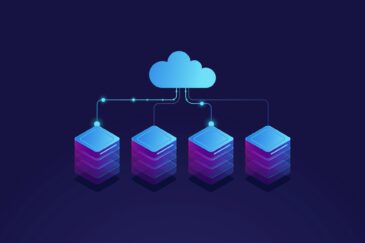A Complete Guide to NetSuite Implementation Costs in 2023

- June 15, 2023
- Jhansi Rani
- 0
NetSuite Licensing Options
NetSuite Editions
- NetSuite ERP: This edition includes core ERP functionalities such as financial management, inventory management, order management, purchasing, and basic CRM capabilities.
- NetSuite SuiteCommerce: This edition focuses on e-commerce capabilities, integrating online store functionality with core ERP features.
- NetSuite CRM: This edition is designed for businesses primarily seeking CRM capabilities with features like marketing automation, sales force automation, and customer relationship management.
User Licensing
NetSuite typically offers user-based licensing, where the cost is determined based on how many users require system access. NetSuite distinguishes between full users (with complete access to the system) and limited users (with restricted access to certain modules or functionalities).
Modules and Functionalities
NetSuite offers various add-on modules and functionalities that can be included in the licensing cost based on business requirements. These may include advanced inventory management, manufacturing, project management, human resources, professional services automation, and more. The pricing for these additional modules can vary.
Contract Terms
NetSuite offers both annual and multi-year contract options. Typically, multi-year contracts provide some cost savings compared to annual contracts.
Implementation
NetSuite implementation requires technical expertise to configure the system according to your business requirements. Depending on the complexity of your organization’s processes, you may need assistance from NetSuite consultants or implementation partners. These professionals will help you with data migration, system setup, integration with third-party applications, and customization. The cost of implementation services can vary depending on the scope of the project, the extent of customization, and the service provider’s experience.
Data Migration
Migrating data from existing systems to NetSuite is a critical aspect of implementation. It involves extracting data, transforming it to fit the new system’s requirements, and loading it into NetSuite. The complexity of data migration depends on factors like the volume of data, the data’s cleanliness, and the existing system’s complexity. Data migration costs can vary significantly based on these factors, so allocating sufficient resources and planning for any potential challenges is crucial.
Customization and Integration
NetSuite provides various customization options to tailor the system to your organization’s needs. Customization may involve creating new workflows, designing custom reports and dashboards, modifying existing forms, or developing new functionalities. Additionally, integrating NetSuite with other applications, such as CRM or e-commerce platforms, may be necessary. The costs associated with customization and integration are based on system complexity and extent of the modifications required.
Training and Support
To ensure a successful NetSuite implementation, training your employees on how to effectively use the system is essential. NetSuite offers training resources and certifications, but additional training and support may be required to address specific business processes and workflows. Consider budgeting for training programs and ongoing support to help employees understand the new system and maximize its benefits.
Ongoing Maintenance and Upgrades
NetSuite is a cloud-based solution, meaning the provider handles regular maintenance and upgrades. However, costs may be associated with ensuring your implementation remains compatible with new versions and features. Considering the potential long-term costs of maintaining and upgrading your NetSuite instance as part of your overall implementation budget is important.
Hidden Costs
While the major cost components have been outlined above, knowing the potential hidden costs is crucial. These can include unforeseen complexities during implementation, hardware upgrades, additional customization requirements that arise later, or the need for extra training and support. It’s advisable to allocate a contingency budget to accommodate any unexpected expenses arising during or after implementation.
NetSuite Solution Providers
Implementation
They can guide businesses through implementing NetSuite, including system setup, data migration, and configuration based on the organization’s requirements.
Customization
NetSuite solution providers can customize the platform to align with unique business processes and workflows. They can create custom fields, forms, reports, and dashboards to meet business needs.
Integration
They can integrate NetSuite with other systems, such as CRM software, e-commerce platforms, payment gateways, etc. This ensures seamless data flow and eliminates manual data entry.
Training and Support
NetSuite solution providers offer training programs to educate users on effectively using the system. They also provide ongoing support to address any issues or questions that arise after implementation.
Upgrades and Enhancements
As NetSuite releases new updates and features, solution providers can assist with system upgrades and help businesses take advantage of the latest functionality.
In conclusion, NetSuite implementation costs in 2023 vary significantly depending on several factors. It’s essential to thoroughly analyze your organization’s requirements, evaluate the scope of customization needed, and work closely with experienced implementation partners to get an accurate estimate of the total cost. Investing time and resources in a well-planned implementation will yield long-term benefits, enabling your organization to streamline

Services
Products
Company
Copyright © 2025 Rite Software Solutions & Services LLC. All rights reserved.



